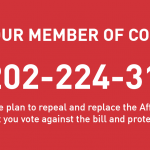What’s at Stake for Asian Americans and Pacific Islanders?
Like many other immigrant and refugee communities and communities of color, our Asian American and Pacific Islander (AAPI) community faces challenging times ahead.
Our AAPI community includes a greater percentage (66%) of immigrants and refugees than any other community. We have the fastest growing immigrant populations and are the fastest growing racial group in the nation. More immigrants are coming to the U.S. from Asia than from any other region of the world. The majority of AAPI immigrants are here legally, but up to one million are undocumented. Though not the largest, the fastest growing undocumented population in Washington is Asian. We are the most culturally, linguistically and religiously diverse community, and include Muslims, as well as members of other faiths.
Despite the persistence of the model minority stereotype, we are not all doing well. When the data on our very diverse communities are lumped together, or aggregated, it looks as if we are. But when the data are disaggregated, a very different picture emerges. Various Asian and Pacific Islander ethnic groups have some of the highest poverty rates and lowest educational attainment rates of any ethnic/racial group. Asians and Pacific Islanders also experience negative health disparities, both mental and physical. Prior to the passage of the Affordable Care Act, or “Obamacare,” Asians had the highest uninsurance rate. After its passage, this rate was halved.
The enforcement of recent Executive Orders on immigrants and refugees would affect our community. States have challenged the temporary travel ban, the “Muslim ban,” as unconstitutional. Judge Robart here in Seattle temporarily stopped the first version of the ban. Judge Watson in Hawaii found that the President’s past statements about keeping Muslims from entering the country signaled a discriminatory intent behind the ban and temporarily stopped implementation of the latest version. The Islamophobia driving the travel ban threatens the rights, safety and well-being of Muslims here from any country. Asian Muslims, like other Muslims, face discrimination based on their faith. Sikhs, who are often mistaken for Muslims because they wear turbans, have experienced discrimination for the same reason.
The Executive Order would also cut refugee admissions in half, and put the entire refugee program on hold for months. Refugees are seeking safety, and delaying or denying their entry through these measures puts their lives, including the lives of children, at stake.
The Executive Orders directed at undocumented immigrants target the Latino community, but will affect all undocumented immigrants, including those in our AAPI community. Immigration and Customs Enforcement (ICE) agents are now encouraged to even more aggressively sweep up and deport millions of undocumented immigrants, no matter the cost to families, communities and our economy. The administration is empowering ICE agents to deport undocumented immigrants who are merely suspected, not charged or convicted, of even minor legal violations. The administration proposes expanding enforcement personnel by thousands, and encouraging local police around the country to act as ICE agents. We are hearing of workplace raids occurring in Asian communities in the country as well as stepped up deportations and frequent raids affecting the Latino community.
Bills introduced by Congressional members in other parts of the country also exemplify anti-immigrant sentiment. Senators Cotton and Purdue from Arkansas and Georgia have introduced a bill which would cut immigration by half, and limit family members eligible to immigrate. If passed, this bill would have a direct and disproportionate impact on Asian immigration, though it would affect all immigrant communities.
The Republican health care plan, the American Health Care Act, released by Speaker Paul Ryan, threatens health care access for low-income Americans and immigrants. The Congressional Budget Office estimates that under the proposed health care plan, 14 million could lose their coverage in 2018 and 24 million could lose coverage by 2026. Among those would be over one million AAPIs. Medicaid, a federal entitlement program serving as the nation’s health care safety net for millions, pays for half the country’s births and nursing home costs for three-quarters of seniors. It pays medical costs for people with disabilities and mental health needs who could not otherwise get the care they need. Medicaid is a crucial support for the middle class, as well as for people with low-incomes. It would be severely cut through capping and block granting a fixed amount to the states. The federal government would shift the cost burden to states and individuals. People with low-incomes, seniors and individuals with disabilities would pay thousands more for coverage, if they could afford it at all; states would face the challenge of covering the true cost of care through a reduced federal subsidy. Two million Asians and Pacific Islanders gained health care coverage under Obamacare; passage of the plan would disproportionately affect AAPIs.
The President’s budget plan includes severe funding cuts for benefits people rely on, such as Meals on Wheels, affordable housing, job training and financial aid. All people with low-incomes will be affected by his budget, including AAPIs, if passed.
Xenophobia, Islamophobia and racism are more openly expressed by both politicians and members of the public in these times, fueling hate incidents and crimes. The shootings of South Asians in Kansas, resulting in injury and death, and a shooting and injury of a member of Kent’s Sikh community, had in common shooters who believed their victims did not belong in the country. Desecration of mosques, temples, churches and graves, and threats to community centers are sadly on the rise.
Immigrant and refugee communities, faith communities, communities of color and LGBTQ communities are all targets of hate incidents, hate crimes and policies driven by bigotry. Our communities are on the front lines of resistance to preserve Constitutional rights for all, interfaith and multiracial unity, and personal and environmental safety.
We are joined by the majority of Americans in our desire for a country based on shared values, rather than on shared race, religion and national origins. Many of our local and national elected officials have declared local jurisdictions as welcoming places for refugees and immigrants, and will not deploy local police and other resources to aid ICE in pursuit of the vast majority of undocumented immigrants and refugees. Though in some ways the worst of times in decades, these difficult times are also bringing out the best in Americans who are visibly, loudly, and consistently standing up for all our rights and our democracy.
There is a struggle going on for the soul of our country; for who we are as a people. Now is the time to come together, in community meetings, rallies, marches, town halls, legislative days, and other events to resist any effort to divide us by race, ethnicity, religion, gender, sexual orientation, national origins, or our status as citizens, refugees or immigrants, documented or undocumented. History will remember where we all stood in these times. Let us stand, and make history together, across the generations, to create a better country and better world for future generations.





